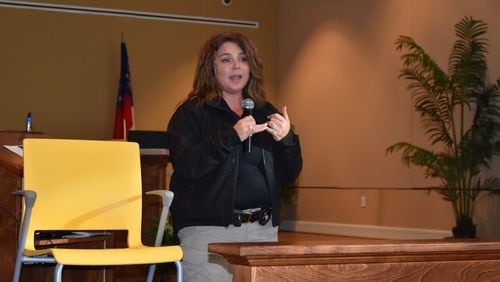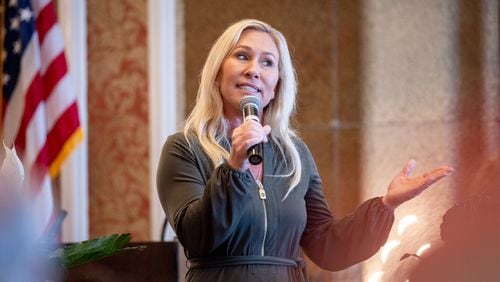District Attorney Tracy Graham Lawson is getting some help to make sure Clayton County doesn’t become a hub for human trafficking.
The Clayton County Commission recently gave Lawson’s office a $300,000 bump so she can hire staff to focus on those types of crimes — a potential problem, she said, with Hartsfield-Jackson International Airport in her backyard. The FBI has identified the world’s busiest airport as a hot-spot for the sex trafficking of children.
"The johns fly in from other states to hook up with the kids," Lawson said. "The airport is key for that. It's also key for some young people being brought through, whether internationally or from another state."
Meanwhile, next door, the Henry County Commission opened its doors for a first-ever town hall on Thursday to address concerns about human trafficking and help residents understand whether it is a problem in the south metro community.
Henry County Police Detective Henry Rotella told attendees at the town hall that the department had no active reports of human trafficking, but said that doesn’t mean trafficking is not taking place. He said the department needs the community’s eyes and ears to look for signs.
In the past year, Lawson’s office has successfully prosecuted two traffickers. Gary Darrell Ferrell and Corey Ashe were convicted in August 2017 and December 2017, respectively, for trafficking underage women in Clayton County. In each case, the men convinced young, homeless girls that they could take care of them before turning them into prostitutes.
“We’re taking a proactive approach,” Clayton Deputy Chief Assistant District Attorney John Fowler said of the office’s plans. “You can’t see the trafficking, but I guarantee you that you walk past it everyday. You just don’t know it.”
Exact numbers on how many people are trafficked are difficult to pin down. The Justice Department says nearly 20,000 people are trafficked into the United States annually, but some think the number may be much higher. It's difficult to spot trafficking are often locked away. And law enforcement aren't always trained to spot them, experts say.
Joanne Southerland, who advocates for trafficking victims through the Clayton County Fire and Emergency Services, said between 200 and 400 people are trafficked for sex in metro Atlanta each month. However, that number could be larger, she told attendees of Henry’s town hall, because law enforcement officials often don’t know to report it to agencies that tracks it.
“I’m not placing blame, you don’t know what you don’t know,” she said.
Human trafficking is a growing problem in metro Atlanta and the state, though how widespread is difficult to gauge. Here are some statistics:
276 — the number of cases of human trafficking in Georgia reported in 2017 to the National Human Trafficking Hotline.
$32,800 — the income a pimp of a human traffic victim can earn weekly in Atlanta.
14 — the average age of trafficked girl used for the first time for sex trade is 14.
Sources: International Human Trafficking Institute, Wellspring Living, Tapestri







